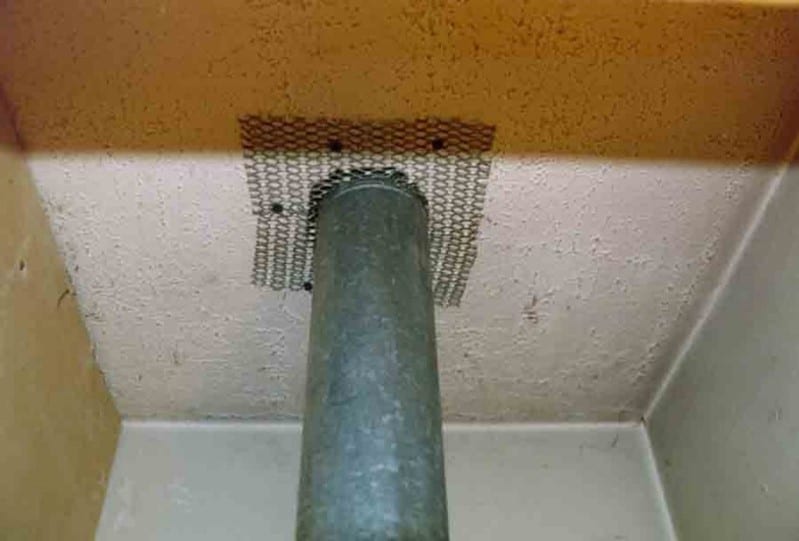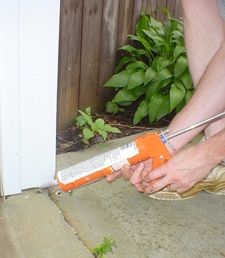What to know
- Look for gaps and holes in and around your home.
- Seal up any gaps and holes you find to prevent rodents from getting in.
- Make sure food and garbage inside your home are sealed up tight.
- Keep outdoor areas clean and food sources away from the home.

Look for gaps or holes
Check inside and outside for large and small gaps or holes. Mice can fit through a hole the width of a pencil (1/4 inch or 6 millimeters in diameter).
Inside your home: where to look
- Inside, under, and behind kitchen cabinets
- Floor areas in closets, especially corners
- Around the fireplace
- Around windows and doors
- Behind appliances
- Around the pipes under sinks and washing machines
- Around the pipes leading to water heaters and furnaces
- Around floor air and dryer vents
- Around all electrical, water, gas, and sewer lines
- Inside the attic
- In the basement or crawl space
- Around floor drains, such as in your basement or laundry room
- Between the floor and wall juncture
Outside your home: where to look
- In the roof among the rafters, gables, eaves, and soffits
- Around windows and doors (especially those without weather stripping)
- Between the foundation of the home and ground
- Around attic and crawl space vents
- Around holes for electrical, plumbing, cable, and gas lines
Seal up gaps and holes

Seal any holes you find to stop rodents from entering.
- Fill small holes with steel wool. Put caulk around the steel wool to keep it in place or use spray foam.
- Use lath screen or metal, cement, hardware cloth, or metal sheeting to fix larger holes. Cut material to fit around pipes.
- Fix gaps in trailer skirting and use flashing around the base of the house.
- Seal outbuildings and garages as well.
Contact your local or state health department if you're concerned about a rodent infestation. You can contact a pest control specialist if rodents have gotten into areas that cannot be reached to clean.
Seal up food and water sources inside
Rodents are attracted to food and water sources, as well as places that are convenient for them to build nests.
- Keep food sealed in thick plastic, metal, or glass containers with tight lids.
- Clean up spilled food right away. Wash dishes and cooking utensils soon after use.
- Put pet food away after use. Do not leave food or water bowls out overnight.
- Keep inside garbage in thick plastic or metal containers with tight lids. Frequently clean the containers with soap and water. Dispose of trash and garbage on a frequent and regular basis.
Seal up nesting sites and food sources outside
- Clean up garbage around your house. Use a thick plastic or metal garbage can with no holes and a tight lid.
- Keep outside cooking areas and grills clean.
- Keep composting bins at least 100 feet from your house.
- Keep bird feeders away from the house and use squirrel guards to limit access to the feeder by squirrels and other rodents.
- Keep grains and animal feed in thick plastic or metal containers with tight lids.
- Dispose of abandoned vehicles or move them more than 100 feet from your home.
- Move woodpiles 100 feet or more from your home and raise the wood at least one foot off the ground.
- Clean up brush and weeds around your home. Keep grass and shrubbery within 100 feet of your home well-trimmed.
